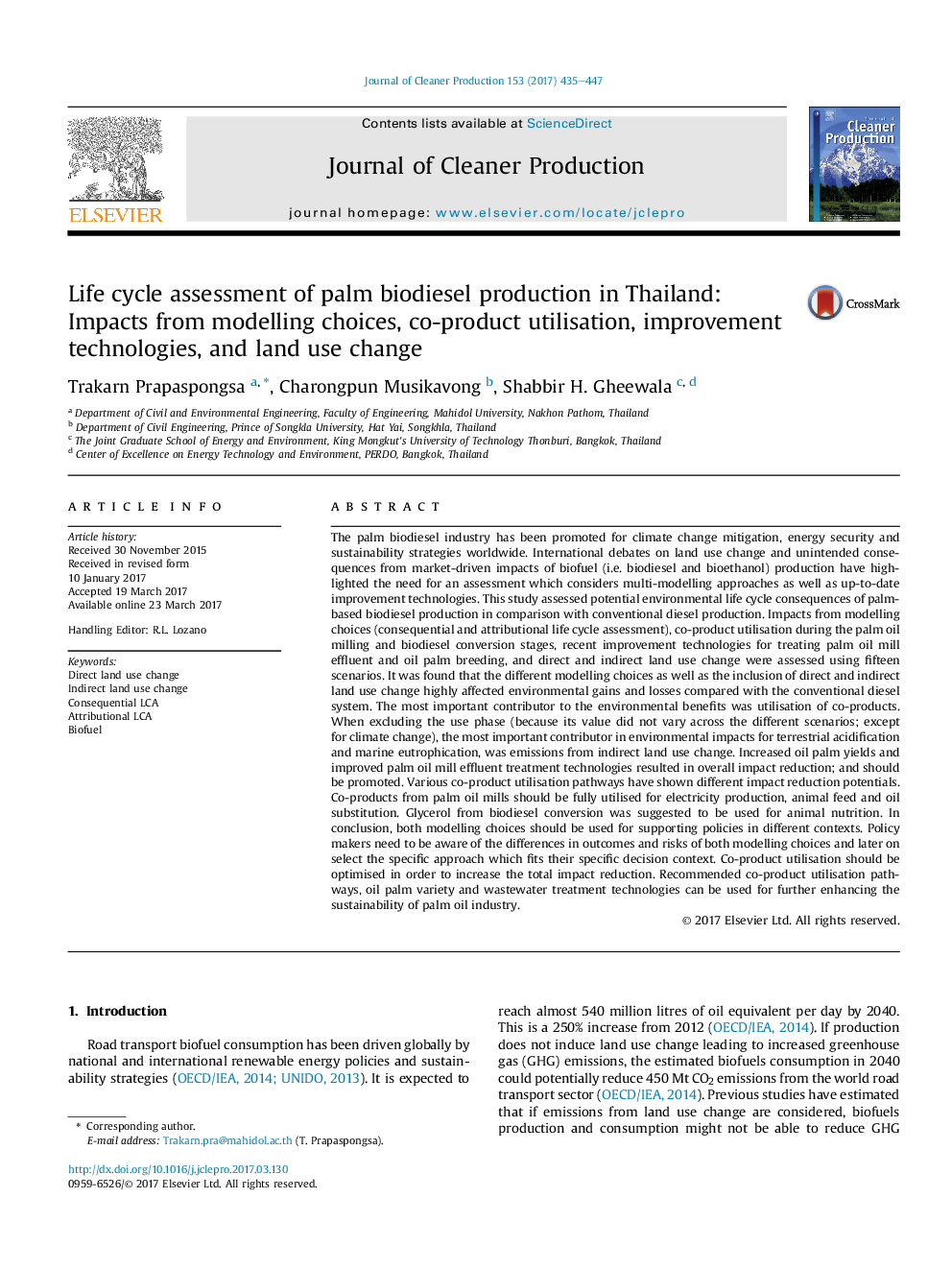| کد مقاله | کد نشریه | سال انتشار | مقاله انگلیسی | نسخه تمام متن |
|---|---|---|---|---|
| 5479654 | 1522100 | 2017 | 13 صفحه PDF | دانلود رایگان |
The palm biodiesel industry has been promoted for climate change mitigation, energy security and sustainability strategies worldwide. International debates on land use change and unintended consequences from market-driven impacts of biofuel (i.e. biodiesel and bioethanol) production have highlighted the need for an assessment which considers multi-modelling approaches as well as up-to-date improvement technologies. This study assessed potential environmental life cycle consequences of palm-based biodiesel production in comparison with conventional diesel production. Impacts from modelling choices (consequential and attributional life cycle assessment), co-product utilisation during the palm oil milling and biodiesel conversion stages, recent improvement technologies for treating palm oil mill effluent and oil palm breeding, and direct and indirect land use change were assessed using fifteen scenarios. It was found that the different modelling choices as well as the inclusion of direct and indirect land use change highly affected environmental gains and losses compared with the conventional diesel system. The most important contributor to the environmental benefits was utilisation of co-products. When excluding the use phase (because its value did not vary across the different scenarios; except for climate change), the most important contributor in environmental impacts for terrestrial acidification and marine eutrophication, was emissions from indirect land use change. Increased oil palm yields and improved palm oil mill effluent treatment technologies resulted in overall impact reduction; and should be promoted. Various co-product utilisation pathways have shown different impact reduction potentials. Co-products from palm oil mills should be fully utilised for electricity production, animal feed and oil substitution. Glycerol from biodiesel conversion was suggested to be used for animal nutrition. In conclusion, both modelling choices should be used for supporting policies in different contexts. Policy makers need to be aware of the differences in outcomes and risks of both modelling choices and later on select the specific approach which fits their specific decision context. Co-product utilisation should be optimised in order to increase the total impact reduction. Recommended co-product utilisation pathways, oil palm variety and wastewater treatment technologies can be used for further enhancing the sustainability of palm oil industry.
Journal: Journal of Cleaner Production - Volume 153, 1 June 2017, Pages 435-447
